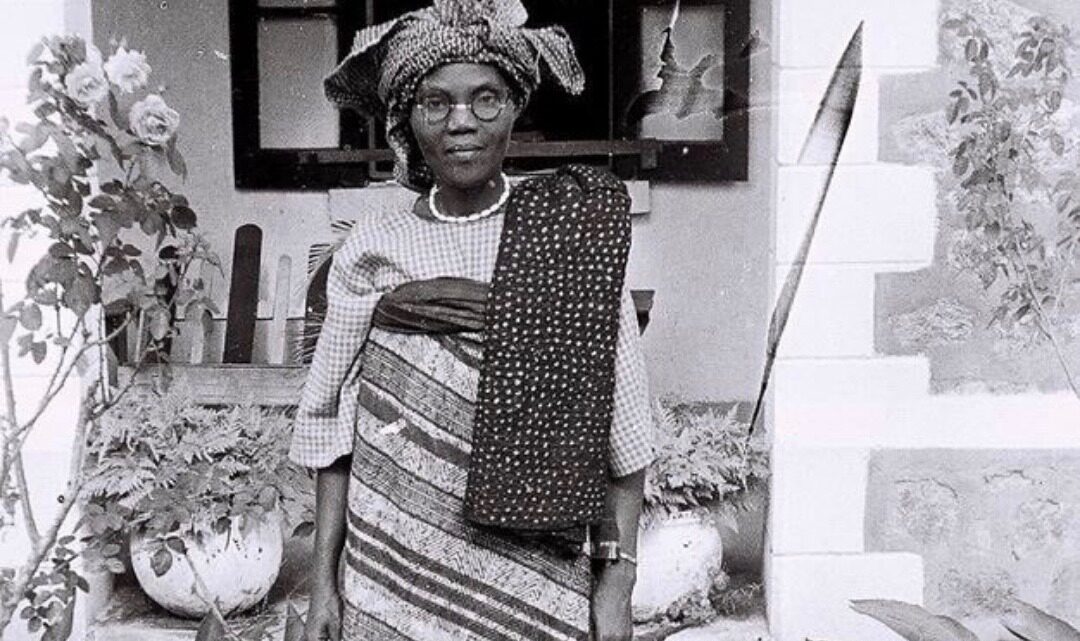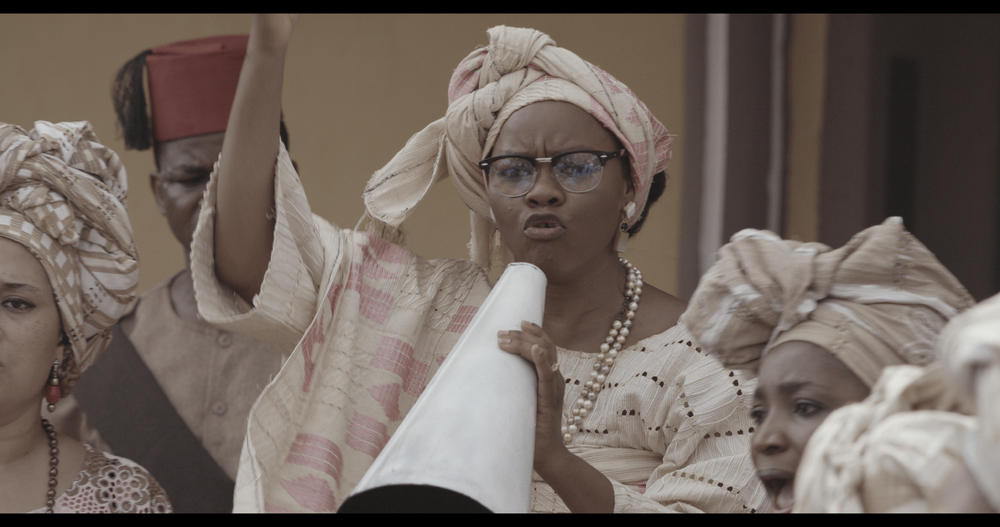
Funmilayo Ransome-Kuti Bio: Husband, Age, Children, Net Worth, Cars, Cause of Death, Education
Biography
Chief Funmilayo Ransome-Kuti (born 1900, died 1978), MON, also known as Funmilayo Aníkúlápó-Kuti, was a trailblazing Nigerian activist, educator, and champion of women’s rights.
A prominent figure in Nigeria’s independence struggle, she vehemently opposed British colonial rule and fought for social justice.
Trending Now!!:
In the 1940s, she founded the Abeokuta Women’s Union, mobilizing women to protest oppressive taxation and demand political representation. Her leadership in these movements famously led to the abdication of the Alake of Egbaland in 1949. Breaking barriers, she was among the first Nigerian women to drive a car and was a staunch critic of patriarchal norms.
Her influence extended beyond activism, shaping the revolutionary spirit of her son, Fela Kuti, the legendary Afrobeat pioneer. She passed away in 1978 from injuries sustained during a military raid on her family’s home, cementing her legacy as a fearless advocate for justice.
| Nigerian educator and political activist | |
Funmilayo Ransome-Kuti | |
|---|---|
 | |
| Wiki Facts & About Data | |
| Real Name: | Frances Abigail Olufunmilayo Thomas |
| Stage Name: | Funmilayo Ransome-Kuti, Funmilayo Aníkúlápó-Kuti |
| Born: | 25 October 1900 (age 77 years old) |
| Died By Assassination: | 13 April 1978, Lagos |
| Place of Birth: | Abeokuta, Ogun State, Nigeria |
| State Of Origin: | Ogun State |
| Nationality: | Nigerian |
| Education: | St. John’s Primary School, Abeokuta Grammar School, |
| Height: | N/A |
| Parents: | Daniel Olumeyuwa Thomas, Lucretia Phyllis Omoyeni Adeosolu |
| Siblings: | Adebola Thomas, Ebenezer Taiwo Thomas, Bankole Thomas |
| Spouse: | Israel Oludotun Ransome-Kuti (m. 1925–1955) |
| Boyfriend • Partner: | Not Dating |
| Children: | Fela Aníkúlápó Kuti, Olikoye Ransome-Kuti, Beko Ransome-Kuti, Dolupo Ransome-Kuti |
| Occupation: | Educator • Political Activist |
| Net Worth: | $?? (USD) |
Early Life & Education
Funmilayo Ransome-Kuti was born on October 25, 1900, in Abeokuta, a city in what is now Ogun State, Nigeria. Her birth name was Frances Abigail Olufunmilayo Thomas, and she belonged to the Yoruba ethnic group, one of Nigeria’s largest and most culturally influential communities.
She was raised in a Christian household and adhered to the Anglican faith, reflecting the missionary influence in colonial Nigeria at the time.
Her parents were Daniel Olumeyuwa Thomas and Lucretia Phyllis Omoyeni Adeosolu, both of whom were from prominent Yoruba families with a mix of traditional and Western-educated backgrounds.
Her father worked as a clerk and was a member of the local elite, while her mother was known for her strong character, traits Funmilayo would later inherit. She had siblings, including Adebola Thomas, Ebenezer Taiwo Thomas, and Bankole Thomas.
Funmilayo’s education was groundbreaking for her time. She attended St. John’s Primary School in Abeokuta, a mission school, where she excelled academically. In 1914, at the age of 14, she became one of the first female students admitted to Abeokuta Grammar School, a prestigious institution previously reserved for boys.
Her academic prowess and determination earned her the opportunity to study abroad. Between 1919 and 1922, she attended a finishing school in England, likely in Cheshire, where she honed her skills in music, domestic science, and teaching while also being exposed to broader global perspectives.
Career
Funmilayo Ransome-Kuti’s career was a powerful fusion of education, activism, and political resistance, driven by her unwavering commitment to social justice, women’s rights, and Nigerian independence.
After returning from her studies in England in 1922, she began her career as an educator, teaching at Abeokuta Grammar School, where she had once been a pioneering student. She abandoned her English name, “Frances,” in favor of her Yoruba identity, Funmilayo, and taught subjects such as English and domestic science, emphasizing education as a means of empowerment. In 1925, she married Israel Oludotun Ransome-Kuti, a fellow educator and Anglican reverend, and together, they co-founded the Ijebu Ode Grammar School, reinforcing their shared belief in education as a catalyst for progress.
By the 1930s and 1940s, Funmilayo had transitioned from teaching to full-scale activism, becoming a vocal critic of British colonial policies—particularly their exploitative taxation system and the exclusion of women from governance. In 1946, she founded the Abeokuta Women’s Union (AWU), which started as a small gathering of market women and educators but quickly grew into a formidable movement with thousands of members.
Under her leadership, the AWU orchestrated large-scale protests against oppressive colonial taxes, most notably the “Women’s War” of 1947–1949. These demonstrations, which included sit-ins and direct confrontations at the Alake’s palace, ultimately led to the temporary abdication of the Alake of Egbaland in 1949 and secured tax relief for women, solidifying her legacy as a fearless grassroots leader.
Her activism extended far beyond Abeokuta. She became a member of the National Council of Nigeria and the Cameroons (NCNC), a key anti-colonial political party, and traveled internationally to advocate for Nigerian independence, including a significant visit to the Soviet Union in the 1950s. Her radical stance drew the ire of colonial authorities, who eventually banned her from international travel due to her growing influence. She also fought for women’s suffrage and education, launching literacy programs for market women and pushing for their political representation.
Even after independence, Funmilayo remained an unrelenting critic of Nigeria’s post-colonial governments, particularly military regimes, and aligned herself with progressive causes. Her home, the “Kuti Compound” in Abeokuta, became a center for activism, hosting political meetings and providing refuge for dissidents.
However, her lifelong struggle for justice met a tragic end in 1978 when she was fatally injured during a military raid on the compound—an attack ordered in response to her son Fela Kuti’s outspoken defiance of the government.
Personal Life
Funmilayo Ransome-Kuti was born on October 25, 1900, and lived until April 13, 1978, dying at the age of 77. She married once, to Israel Oludotun Ransome-Kuti, on January 20, 1925.
Israel, an Anglican reverend, educator, and fellow activist, was a supportive partner in her endeavors until he died in 1955 from cancer. Their marriage, which lasted 30 years, was her only one, and there is no record of her remarrying after his passing.
Together, Funmilayo and Israel had four children: Olikoye Ransome-Kuti (1927–2003), a renowned pediatrician and health minister; Fela Anikulapo-Kuti (1938–1997), the legendary Afrobeat musician and activist; Beko Ransome-Kuti (1940–2006), a doctor and human rights campaigner; and Dolupo Ransome-Kuti, their only daughter, who lived a quieter life and passed away in 2010. Her children inherited her fierce spirit, with Fela and Beko particularly continuing her legacy of resistance against oppression.
She had numerous grandchildren, including Fela’s children like, Femi Kuti and Seun Kuti, both of whom became prominent musicians, and Olikoye’s children, such as Omosalewa Ransome-Kuti, a doctor. Given the large family of her sons, her exact number of grandchildren is harder to pin down, but her lineage remains influential in Nigerian culture and activism.
Cause of Death
Funmilayo’s cause of death was tied to injuries sustained during a violent military raid on February 18, 1977, at the Kuti family compound in Lagos, known as the Kalakuta Republic. Soldiers, acting under the military regime of Olusegun Obasanjo, attacked the compound in retaliation for Fela’s anti-government activism.
Funmilayo, then 76, was thrown from a second-story window by soldiers, suffering severe injuries, including a fractured leg and trauma. She lingered in a coma for months, receiving treatment at Lagos University Teaching Hospital, before succumbing on April 13, 1978. Her death was a direct result of state brutality, marking a tragic end to a life dedicated to fighting injustice.
Net Worth
Funmilayo Ransome-Kuti’s net worth is not precisely documented, as she lived in an era where personal wealth was rarely quantified or publicized, especially for activists like her in colonial and post-independence Nigeria.
Born on October 25, 1900, and passing on April 13, 1978, she dedicated her life to education, women’s rights, and anti-colonial activism rather than accumulating material wealth. As a teacher and founder of the Abeokuta Women’s Union, her income likely came from her educational work and her husband Israel Ransome-Kuti’s earnings as a reverend and school principal.
The couple lived modestly, investing in their community and causes rather than personal luxury. Her true “wealth” lay in her influence—mobilizing thousands, shaping Nigerian independence, and leaving a legacy through her children, like Fela Kuti. Any estimation of her net worth would be speculative, but it’s clear she prioritized impact over financial gain.
NOTICE!! NOTICE!! NOTICE!!
DISCLAIMER!! : Every Biography and Content Published On TheCityCeleb are For Knowledge Reason. Don't Hesitate to Reach Out for Any Correction || Suggestion || Copyright!!CORRECT@thecityceleb.com


